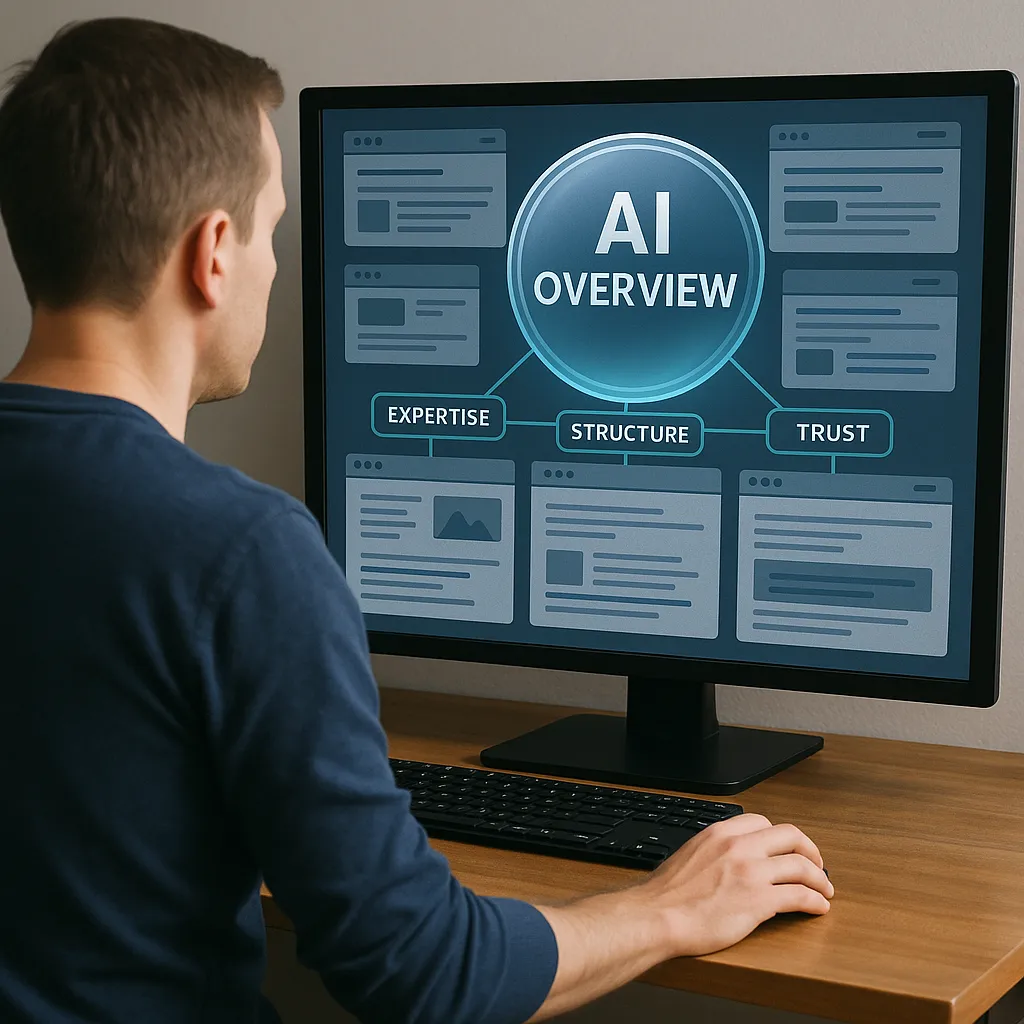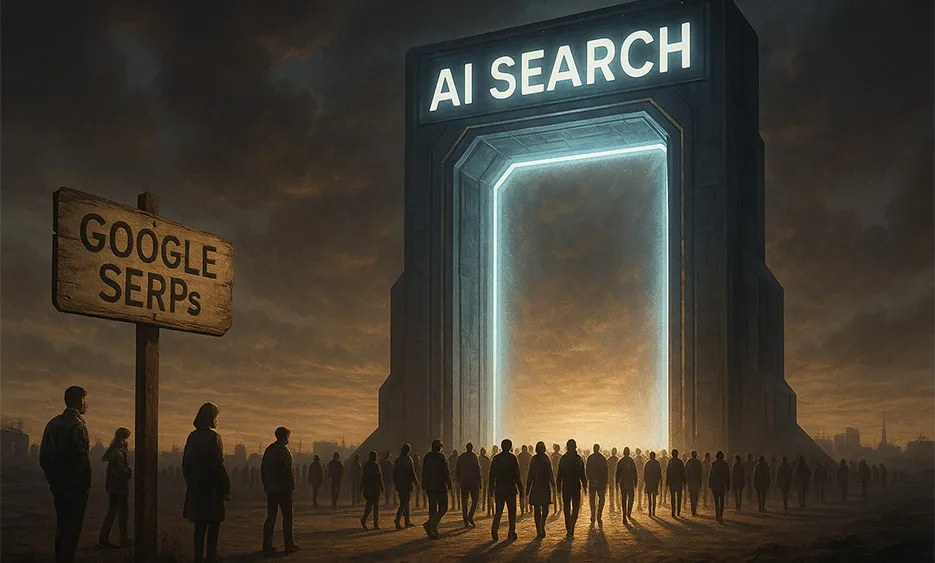
Grokipedia vs. Wikipedia: A new era?
31. October 2025
Wikipedia stands for open community knowledge, Grokipedia for AI-driven control—two systems with completely different understandings of truth. Learn how this change is transforming knowledge, transparency, and online marketing, and why critical thinking is more important than ever.
Overview
- Wikipedia stands for collaboratively created knowledge, while Grokipedia relies on AI-driven control—two systems that define truth and objectivity in completely different ways.
- Wikipedia relies on human moderation and discussion, while Grokipedia relies on algorithmic control and real-time updates by the AI Grok.
- This shift shows how knowledge, transparency, and information control are changing in the digital age—with far-reaching consequences for marketing, education, and communication.
Grokipedia vs. Wikipedia – Which option is better? Knowledge is everywhere today—but who decides what’s true? Since 2001, Wikipedia has stood for open, collaboratively created knowledge. With Grokipedia, developed by Elon Musk’s xAI, a new platform has emerged—one powered by artificial intelligence. Both systems promise objectivity and transparency. But on closer inspection, their structures, control mechanisms, and goals differ fundamentally.
Wikipedia relies on a global community of volunteers, whereas Grokipedia generates all content using the AI Grok. These two models reflect the current shift—from human moderation to algorithmic control.
If you want to know how open knowledge really is—and what that means for marketing, education, and digital communication in general—this is where you’ll find the answers.
What is Grokipedia vs. Wikipedia?
Wikipedia is a freely editable online encyclopedia operated by the nonprofit Wikimedia Foundation. In theory, anyone can write or edit articles. However, not all changes appear immediately. Especially for sensitive topics like politics or medicine, an approval system is in place: only users with special permissions—known as “reviewers” or “administrators”—are allowed to publish final versions. This is intended to prevent vandalism, but at the same time, it creates a form of hierarchy.
Grokipedia, on the other hand, was founded by xAI in 2025 and operates entirely differently. There are no open editors here. The AI “Grok” scans the internet—especially content on X (formerly Twitter)—analyzes sources, and independently generates texts. While humans can submit suggestions, edits are made exclusively by the AI. The goal: real-time updates—without human delay.
While Wikipedia relies on collective trust, Grokipedia is based on technological control. These two approaches shape how knowledge is created and shared in the digital age.
Why is this topic important?
The question of who shapes and controls information affects you directly—whether you publish content, conduct research, or plan marketing strategies. Wikipedia gives the impression of being an open, decentralized system, but in reality, a small number of experienced users dominate the decision-making process. Studies show that a fraction of the authors control the majority of the content. This means that the supposed decentralization only exists to a limited extent.
Grokipedia bypasses this human hierarchy through algorithmic control. However, it replaces human discussion with machine-based prioritization. Which information the AI favors depends on training data, company objectives, and internal policies—processes that remain opaque to outsiders.
For digital marketing and communication, this means: when analyzing sources or planning campaigns, you need to understand how information is created. Only then can you assess its credibility—and decide which platform to use as a reference.
How knowledge creation works in practice
Wikipedia: Community with supervisory bodies
Wikipedia thrives on contributions from individual users. Articles are created, reviewed, and improved by the community. For sensitive topics, the “Flagged Revisions” system applies—edits must be approved before they become visible. These safeguards improve quality but can also delay or block alternative perspectives.
In German Wikipedia, for example, a small group of experienced editors decides on the publication of many articles. This protects against misinformation, but can also lead to the suppression of certain points of view.
Grokipedia: AI as sole editor
Grokipedia replaces human moderation with artificial intelligence. Grok analyzes data from millions of sources in real time, prioritizes topics by relevance, and automatically generates new articles. The advantage: speed and up-to-date information. The challenge: transparency. There is no public version history, no insight into decision-making processes, and no visible discussion.
The result: Grokipedia delivers information within seconds, but users cannot trace why certain facts are emphasized or omitted.
Comparison of tools and methods
Both platforms use technical systems to structure knowledge—but with different goals. Here is an overview:
| Aspect | Wikipedia | Grokipedia |
|---|---|---|
| Processing | Open, with community moderation | Centrally controlled by AI |
| Transparency | Public edit history | No visible changes |
| Control | Joint supervision | Corporate governance (xAI) |
| Speed | Slow due to review processes | Fast thanks to real-time AI |
| Objectivity | Influenced by group decisions | Dependent on training data |
Opportunities and risks of Grokipedia and Wikipedia
Both platforms pursue noble goals—making knowledge accessible. But their systems harbor different risks.
Wikipedia encourages participation but can be vulnerable to internal power structures. Administrators and reviewers decide which edits remain visible, which can result in underrepresentation of controversial viewpoints. Especially in the German version, “reviewed versions” often lead to long delays in publishing new content.
Grokipedia, on the other hand, is fast, efficient, and up to date. But since decisions are made entirely by the AI and the developers at xAI, it remains unclear how objective the selection of information truly is. Algorithmic bias can be just as one-sided as human bias.
FAQ-style short questions
How does bias arise on Wikipedia?
Through group dynamics and dominant contributors who can influence topics or phrasing.
How does bias arise on Grokipedia?
Through data selection, training materials, and the AI’s algorithmic weighting.
Which platform is more transparent?
Wikipedia offers open discussion pages, whereas Grokipedia provides little insight into its decision-making logic.
Which is faster?
Grokipedia responds in real time—Wikipedia often takes days due to human approvals.
The future of online knowledge
The future likely lies somewhere between both extremes. Wikipedia is already experimenting with AI-powered tools for quality control, while xAI is working to make Grokipedia more explainable. A combination of AI analysis and human oversight could offer the best long-term balance.
Legal frameworks such as the European AI Act will also shape future developments. Transparency requirements may compel AI encyclopedias to disclose which sources they use. For you as a marketer or entrepreneur, this means: content that is clearly traceable and verifiably reviewed will perform better in the long run—in both traditional search engines and AI-based systems like ChatGPT or Perplexity.
Conclusion
Wikipedia and Grokipedia represent two opposing approaches: collective intelligence versus artificial centralization. Both systems provide valuable knowledge, yet neither is completely objective. Wikipedia is open but hierarchical. Grokipedia is fast but opaque.
If you're researching information, creating content, or doing online marketing for your business, you should understand both models. What matters is not only what a platform says, but how it arrives at its statements. This is where your advantage lies: by critically evaluating sources and leveraging the strengths of both systems, you can achieve greater transparency, trust, and visibility in the digital space.
If you’d like to learn how to strategically integrate AI-powered content into your online marketing or adapt your SEO strategy to the new search landscape, we’re happy to help. Just send an email to [info@media-beats.com](mailto:info@media-beats.com) or use our contact form.
FAQs
Sources:
- https://diff.wikimedia.org/2025/02/21/legal-victory-in-germany-protects-the-wikimedia-projects-and-volunteers-from-forum-shopping/
- https://en.wikipedia.org/wiki/Criticism_of_Wikipedia
- https://en.wikipedia.org/wiki/Ideological_bias_on_Wikipedia
- https://en.wikipedia.org/wiki/Wikipedia:Wikipedia_Signpost/2025-09-09/In_the_media
- https://en.wikipedia.org/wiki/Wikipedia:Wikipedia_Signpost/2025-09-09/Disinformation_report
- https://www.reddit.com/r/skeptic/comments/1hx288p/the_people_behind_project_2025_want_to_reveal_the/
- https://arxiv.org/html/2509.02462v1
- https://www.cnbc.com/2025/10/28/elon-musk-grokipedia-wikipedia-founder-jimmy-wales.html
- https://www.euronews.com/next/2025/10/28/elon-musk-launches-ai-powered-encyclopedia-to-rival-wikipedia-will-grokipedia-take-off
- https://evrimagaci.org/gpt/elon-musks-grokipedia-sparks-controversy-over-wikipedia-copying-514190
- https://meta.wikimedia.org/wiki/Flagged_Revisions
- https://en.wikipedia.org/wiki/Wikipedia:Formal_organization
- https://www.reddit.com/r/technology/comments/7bkmed/nearly_all_of_wikipedia_is_written_by_just_1/
- https://pmc.ncbi.nlm.nih.gov/articles/PMC7850083/
- chrome-extension://efaidnbmnnnibpcajpcglclefindmkaj/https://www.lcii.eu/wp-content/uploads/2017/02/A.-Kerkhof-J.-M%C3%BCnster-Coverage-bias-on-Wikipedia.pdf
- https://toolfolio.io/productive-value/grokipedia-vs-wikipedia
- https://www.digit.in/features/general/grokipedia-vs-wikipedia-key-differences-explained.html
- https://www.firstpost.com/explainers/elon-musk-grokipedia-wikipedia-rival-ai-generated-explained-13945636.html
- https://www.moneycontrol.com/technology/grokipedia-vs-wikipedia-how-elon-musk-s-new-ai-powered-encyclopedia-compares-to-the-decades-old-community-platform-article-13636011.html
- https://meta.wikimedia.org/wiki/Flagged_Revisions
- https://skywork.ai/blog/grokipedia-vs-wikipedia-2025-comparison/
- https://pmc.ncbi.nlm.nih.gov/articles/PMC7850083/
Our blog
Latest news
With our blog, you are always close to our work, our current projects and the latest trends and developments in web and print.
Any questions?





